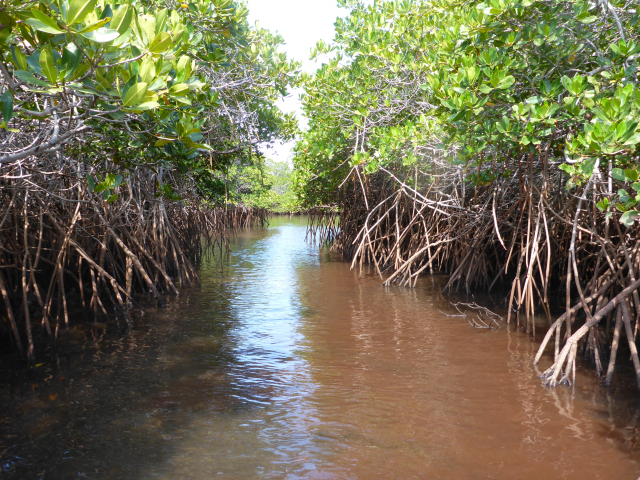Ecosystem Co-Design
Thematic Focus
Humans have been changing their environment for ages by managing ecosystems and using their goods and services - increasingly recognized as ‘Anthropocene’. Some of those changes may be irreversible, others may be altered to maintain critical ecosystem processes and services. PA 4 addresses questions related to achieving a more sustainable Anthropocene. This would be characterised by humans actively shaping their environment with specific societal and ecological goals, explicitly paying attention to the influence of local action on regional and global scales.
Such strategy requires Ecosystem Co-Design, aiming to sustain or improve the provisioning of ecosystem services and their interface with society through science and participation of local human communities and relevant knowledge providers. This includes developing a new ‘conservationism’ with co-designed coastal ecosystems that most efficiently provide those ecosystem services most urgently needed and are able to tolerate ongoing environmental changes for maintaining or re-establishing critical processes and services of ecosystems.
PA 4 works on approaches of how ecosystem management, conservation and co-design can be developed in the light of the ecosystem services required locally, regionally and globally. In this context, a well-defined approach to stakeholder engagement is of outmost importance to achieve genuine co-design, in order to prepare fair participation and negotiation, e.g., among governments, local users and stakeholders, opposing and competing interest groups[1] . The degree of uncertainties in assessing potential desirable and undesirable environmental changes resulting from ecosystem co-design showcases the need for integration of detailed knowledge, empirically based governance frameworks, and management systems that ensure sustainable ecosystem use.
In this PA, ecosystem processes which drive ecosystem services, as well as knowledge systems and society's relationship with ecosystems, are studied in a parallel and integrated manner. Known unknowns, unknown unknowns, and potential unexpected outcomes and consequences of Ecosystem Co-Design are identified, studied and analysed from ecological and societal perspectives.
[1] Cf. ZMT Stakeholder Engagement Strategy: https://www.leibniz-zmt.de/images/content/pdf/OKE_Office_Knowledge_Exchange/OKE_Stakeholder_Engagement_Guidance.pdf





